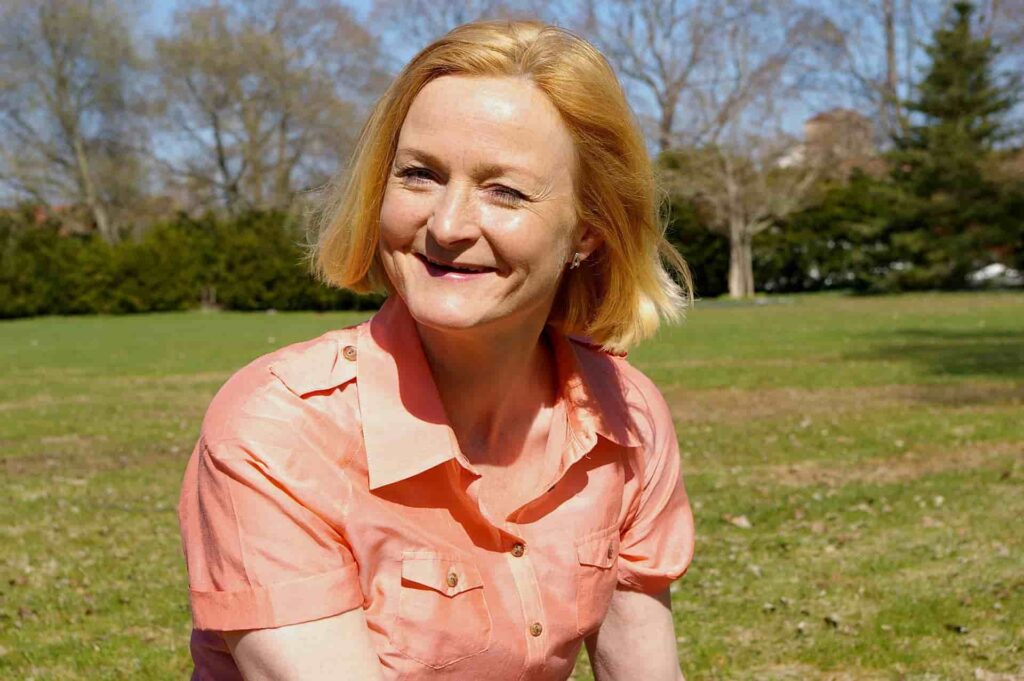Table of Contents
Table of Contents
Table of Contents
Menopause Means: Understanding the Transition and Its Impact

Menopause means a significant phase in every woman’s life, marking the end of her reproductive years. This transition is not just about physical changes but also encompasses emotional and psychological adjustments. In this article, we’ll dive deep into menopause explanation, its causes, symptoms, and how it affects health and daily life. Additionally, we’ll explore practical tips and strategies for navigating this transformative phase with confidence.
What Defines Menopause?

To put it simply, what defines menopause is the absence of menstrual periods for 12 consecutive months. It typically occurs between the ages of 45 and 55, though this can vary. Here are some key aspects:
Natural Aging Process: Menopause is a natural biological process that happens as the ovaries produce fewer reproductive hormones like estrogen and progesterone.
Surgical Menopause: In some cases, women may experience menopause earlier due to surgeries like a hysterectomy or medical treatments such as chemotherapy.
Perimenopause: This is the phase leading up to menopause, where hormone levels begin to fluctuate, often causing noticeable symptoms.
Premature Menopause: For some women, menopause can occur before the age of 40, due to genetic factors or autoimmune conditions. This early onset often requires specialized medical care.
What Causes the Symptoms of Menopause?

The symptoms of menopause are primarily caused by the decline in estrogen and other hormone levels. These hormonal shifts can affect almost every system in the body. Here are some common menopause symptoms and their causes:
Hot Flashes: These sudden feelings of heat are due to changes in the hypothalamus, the part of the brain that regulates body temperature.
Mood Swings: Lower estrogen levels can influence serotonin, the «feel-good» hormone, leading to mood fluctuations. Stress and fatigue often exacerbate these feelings.
Sleep Disturbances: Insomnia and night sweats are common during this time, making it harder for women to get restful sleep.
Hair Thinning: Reduced estrogen levels can lead to thinning hair or hair loss. Many women wonder, how to grow hair back after menopause or how to make your hair thicker after menopause. We’ll cover solutions later in the article.
Joint Pain: As estrogen levels drop, inflammation in the joints may increase, leading to discomfort or stiffness, especially in the morning.
Common Symptoms and Challenges During Menopause

Here’s a quick rundown of some of the most common challenges:
| Symptom | Cause | Management Tips |
|---|---|---|
| Hot Flashes | Hormonal imbalance | Stay cool, avoid triggers like caffeine |
| Sleep Problems | Hormonal changes, night sweats | Establish a bedtime routine, try relaxation techniques |
| Hair Thinning | Lower estrogen levels | Explore treatments to thicken hair during menopause |
| Weight Gain | Slower metabolism, hormone shifts | Maintain a balanced diet and regular exercise |
| Mood Swings | Serotonin fluctuations | Consider therapy or meditation |
| Joint Pain | Increased inflammation | Gentle exercise, anti-inflammatory diet |
| Memory Issues | Decline in estrogen impacting brain function | Brain exercises, mindfulness techniques |
Menopause Information Every Woman Should Know

Navigating menopause can feel overwhelming, but understanding the changes and options available can make the process smoother. Here’s some menopause information to keep in mind:
1. Hormonal Changes
Menopause means your body is adjusting to lower hormone levels. While natural, these changes may require medical guidance for effective management. Menopause health care often includes hormone replacement therapy (HRT), lifestyle changes, or alternative treatments. HRT is particularly effective in alleviating hot flashes, preventing bone loss, and improving overall quality of life.
2. Emotional Well-being
Mental health is just as important as physical health. Many women benefit from counseling or support groups to manage feelings of anxiety or depression during this time. Journaling or creative outlets can also provide emotional relief and self-expression.
3. Lifestyle Adjustments
Diet: Incorporate calcium-rich foods to support bone health, such as dairy products, leafy greens, and fortified plant-based milks. Reduce processed sugar and caffeine, which can worsen symptoms.
Exercise: Regular activity like yoga, walking, or swimming can help manage weight, improve mood, and reduce joint pain. Strength training also helps maintain muscle mass and bone density.
Sleep Hygiene: Avoid screen time before bed, maintain a consistent sleep schedule, and create a calming bedtime routine to combat insomnia.
4. Staying Informed
Knowledge is power. Staying informed about menopause helps women anticipate changes and take proactive steps. Regular check-ups with healthcare providers ensure that concerns are addressed promptly.
Hair Loss During Menopause: Causes and Solutions

Hair thinning can be one of the most distressing symptoms of menopause. If you’re asking, how can I thicken my hair after menopause?, you’re not alone. Here are some insights:
Why Does Hair Get Thinner During Menopause?
Hair follicles are sensitive to hormonal changes. The decline in estrogen and progesterone affects hair growth cycles, leading to thinner hair or hair loss. Stress, poor nutrition, and certain medications can also exacerbate the problem.
How to Thicken Hair During Menopause
Here are actionable tips:
Topical Treatments
Minoxidil: This FDA-approved treatment stimulates hair growth.
Essential Oils: Rosemary and peppermint oils may promote thicker hair by improving blood circulation to the scalp.
Scalp Massages: Regularly massaging your scalp can encourage blood flow and hair growth.
Dietary Changes
Include biotin-rich foods like eggs and nuts.
Add omega-3 fatty acids for scalp health, found in fish like salmon or in supplements.
Focus on protein intake to provide the building blocks for hair growth.
Professional Treatments
Platelet-rich plasma (PRP) therapy is a newer option to encourage hair regrowth. It involves injecting your own plasma into the scalp to stimulate follicles.
Hair transplants or micro-needling may be options for severe hair loss.
Hair Care Routine
Use sulfate-free shampoos to reduce scalp irritation and prevent further damage.
Avoid heat styling tools that can damage fragile hair. Air-drying is a gentler alternative.
Invest in products designed to volumize and strengthen thinning hair.
Supplements
Collagen and biotin supplements can help strengthen hair.
Vitamin D and iron are also essential for hair health. A deficiency in either can worsen hair thinning.
Always consult your doctor before starting any new supplement.
Stress Management
Chronic stress can worsen hair thinning. Consider practices like meditation, yoga, or deep-breathing exercises to reduce stress levels.
Frequently Asked Questions

Does Hair Get Thicker After Menopause?
While some women notice regrowth post-menopause, it’s more common for hair to remain thin unless specific treatments are applied. Lifestyle changes and targeted therapies are key.
How Can I Regrow My Hair After Menopause?
Consistent use of treatments like minoxidil and maintaining a healthy lifestyle are key to encouraging regrowth. Consultation with a dermatologist can also provide personalized advice.
How to Get Thicker Hair in Menopause?
Focus on a combination of topical treatments, dietary adjustments, and professional advice for the best results. Remember, consistency is crucial.
Final Thoughts
Menopause means embracing a new chapter of life. While the transition can bring challenges, understanding what defines menopause and its symptoms helps you navigate it with confidence. From seeking menopause health care to finding solutions for hair thinning, there are plenty of resources to support you. With the right approach, this phase can become an opportunity for growth and self-discovery.
Some information about menopause has been taken from a reliable source like the Mayo Clinic. Always discuss your unique needs with your doctor.


